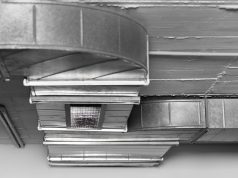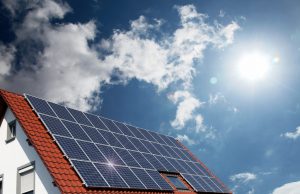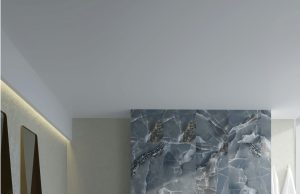
Windows are the gateways to the outside world, allowing natural light into the room and views of the surrounding landscape. But over time, hard water stains can compromise the beauty of windows. These stubborn stains not only spoil the aesthetics of your windows but can also cause damage if left untreated. In this comprehensive guide, you will learn how hard water stains affect your windows, how they form, their effects and effective ways to remove and prevent them.
What are hard water stains?
Hard water stains, or mineral deposits, are the residue left behind by minerals in hard water, which are mainly calcium and magnesium ions. When hard water evaporates or dries on the surface, these minerals remain and become visible stains or deposits.
Explaining hard water
Hard water is water with high levels of minerals, mainly calcium and magnesium ions. When this water comes into contact with surfaces and evaporates, mineral deposits remain and cause hard water stains.
Formation of calcium and mineral deposits
As hard water evaporates, the minerals it carries remain on the surface. Over time, these deposits build up and become visible as unsightly white, chalky stains on the window glass.
Visible effects on window glass
Hard water stains on window glass can affect its clarity and appearance in various ways. The severity of such stains depends on factors such as the degree of hard water accumulation, the frequency of exposure and the composition of the water.
How do hard water stains look?
Hard water stains usually appear as blurry white spots on window glass. The remains vary in size and intensity, and their appearance will worsen without immediate intervention.
Impact on clarity and aesthetics
Hard water stains significantly impact the clarity and aesthetics of window glass. They can obstruct visibility, reduce natural light and give windows an unkempt appearance.
Potential damage to window surfaces
If left untreated, the minerals in hard water can cause several issues to the surfaces, including:
- Surface erosion
- Permanent etching
- Reduced light transmission
- Impaired visibility
Abrasion and erosion of glass
If left untreated, hard water stains can erode the surface of the glass and cause permanent damage. Glass can become pitted or fogged, affecting both appearance and functionality.
Effects on window frames and seals
Hard water stains can also affect window frames and seals. Mineral deposits can erode metal frames and deteriorate seals, reducing energy efficiency and water ingress.
Common Culprits: Where Hard Water Stains Originate
The best way to protect your surfaces from hard water is to know where it is coming from and avoid using it for cleaning.
Municipal water supply
Many households are supplied with tap water containing varying degrees of minerals. Depending on where you live, tap water can be a source of hard water stains.
Well water
When you get water from a well, it is usually high in minerals, so homes with their main supply from such a place are particularly susceptible to hard water staining. Without a water softener, this type of water can lead to more severe staining and, in some cases – permanent damage.
Rainwater and irrigation
Rainwater can stain window panes when it accumulates and evaporates, especially in areas with hard water. Irrigation systems that use hard water can exacerbate this problem.
Causes of hard water stains
Even if you use softeners and are very careful with the water you use for cleaning, you can still notice hard water stains. External factors usually cause those.
Evaporation and mineral deposition
Hard water stains can appear on the surfaces because minerals build up as the water evaporates. This process continues over time and makes the stain progressively worse. It is always a good idea to check your windows the day after it rains to check for stains and clean them at your earliest convenience.
The role of sunlight and heat
Sunlight and heat make hard water stains worse. They burn the minerals in the glass, making removing them even more challenging. High temperatures, combined with hard water, may cause permanent damage to the windows if not cleaned promptly with a mild detergent.
The importance of timely removal
Prevention of permanent damage
Dealing with hard water stains quickly is essential to prevent permanent damage to the window glass. Early removal prevents dirt from gnawing into the glass.
Maintaining clean and attractive windows
Removing hard water stains will help maintain the clarity and attractiveness of your windows. Clean windows increase the aesthetic appeal of your home and let in more natural light.
Do-it-yourself methods for removing hard water stains
Hard water stains can be stubborn. You can still get rid of them using a few DIY methods:
- Vinegar solution. Mix white vinegar and water equally and apply to the stain. Leave for a few minutes, then scrub with a soft cloth or sponge. Rinse and leave to dry.
- Baking soda paste. Mix baking soda and water to make a paste. Apply to the stain, rub gently, rinse and leave to dry.
- Lemon juice. Squeeze fresh lemon juice onto the stain and leave for a few minutes. Rub with a soft cloth or sponge, rinse and dry.
- Commercial stain removers. There are many commercial hard water stain removers available. Follow the manufacturer’s instructions for the best results.
Professional help for severe stains
For severe or stubborn hard water stains, or if you are unsure of the best method, it is advisable to seek professional help from a reputable window cleaner. Professionals have the expertise and equipment to tackle stubborn stains safely and effectively.
Preventing future hard water stains
- Water softener. Installing a water softener in your home can significantly reduce the mineral content in water and prevent new hard water stains from forming.
- Protective coatings. Consider applying protective coatings to your windows. This creates a barrier that repels water and minerals and makes them more resistant to staining.
- Regular window maintenance. Clean your windows regularly to remove water droplets and deposits before they become stubborn stains. This maintenance will help keep your windows looking nice and clean.
Conclusion
Hard water stains are a frustrating and unsightly problem for homeowners, but you can overcome them with the proper knowledge and techniques. Understanding the formation of hard water stains, their effects and how to effectively remove them can help keep windows clean, attractive and free from the harmful effects of mineral deposits.













